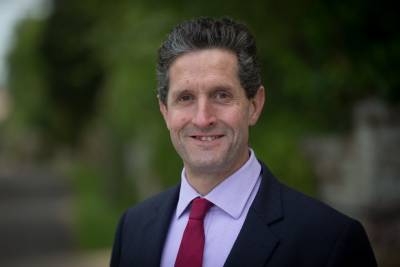
Recently described as ‘the physicist behind net zero’ Myles Allen has been studying global climate change for 30 years. He developed the methods used by the Intergovernmental Panel on Climate Change (IPCC) in 2001 to quantify the size of human influence on observed and projected changes in global temperature, work that earned him the Appleton Medal and Prize from the Institute of Physics in 2010.
In 2005, Myles first proposed the concept of a global carbon budget and in particular the idea that peak warming is determined by the total amount of carbon dioxide we emit into the atmosphere before emissions are reduced to net zero and not the amount we emit in any given year or the eventual long-term atmospheric concentration.
He has been working on the implications for climate policy ever since, including for other greenhouse gases such as methane, most recently as coordinating lead author for the 2018 IPCC Special Report on 1.5 degrees.
Myles has long been a proponent of fossil fuel producers taking responsibility for cleaning up after the products they sell rather than placing the onus on relatively powerless consumers. He is Professor of Geosystem Science in the School of Geography and the Environment and Department of Physics at the University of Oxford and Director of Oxford Net Zero.
In his talk Myles will discuss how methane is a major driver of global warming and the global livestock industry is a substantial contributor. He will highlight how there is opportunity to re-focus climate policy on warming outcomes and recognise the positive contribution that the livestock sector can make.